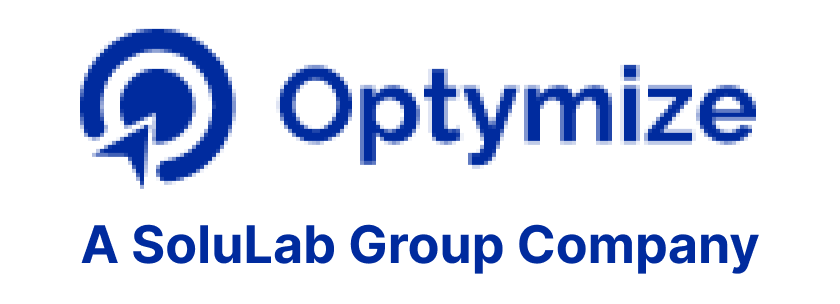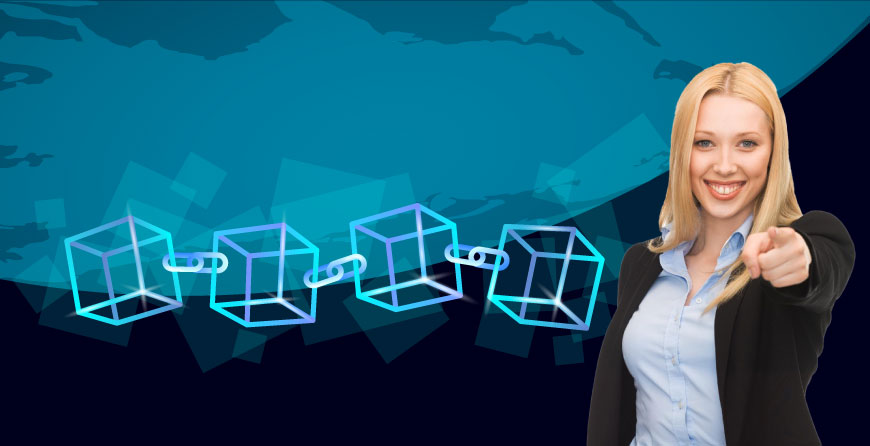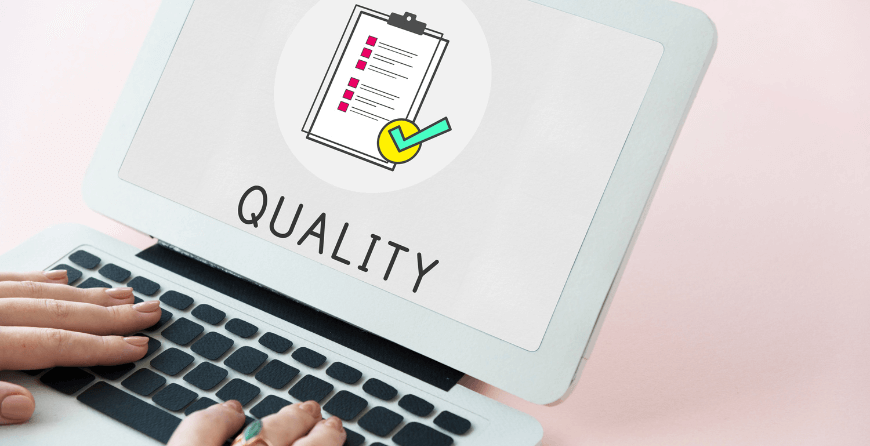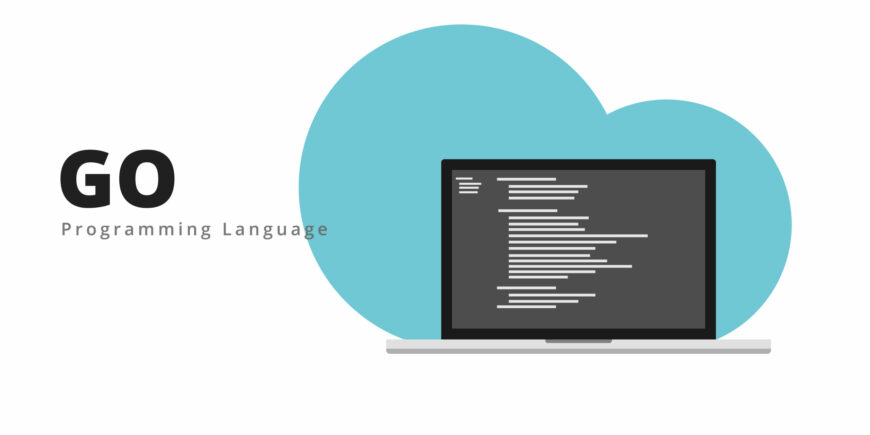Blockchain is still in its infant stages, but the possibilities for developers to participate are not only intriguing but also plentiful.
Blockchain has infiltrated many industries, including supply chains, automobiles, and finance, but it is not without flaws. We first saw a use case for Blockchain when a cryptocurrency, specifically Bitcoin, became popular. The first Bitcoin blockchain was created in 2009 by Satoshi Nakamoto.
Blockchain technology has the potential to transform the way the virtual world manages data and conducts business. Initially developed as a platform to support Bitcoin, Blockchain is displaying a level of flexibility and security that has piqued the interest of many sectors of business and government, prompting them to begin putting it to use.
With that in mind, it stands to reason that if you want to start a career with a lot of room for advancement and dynamic new technology that’s just getting started, you should consider becoming a Blockchain developer.
But how do you become a blockchain developer? How does one go about creating Blockchain applications by being a Blockchain developer? In this article, we will cover all the basics of becoming a blockchain developer, the skills required, and so on.
What Is the Role of a Blockchain Developer?
The responsibility of the Blockchain developer is to create innovative solutions to difficult problems, such as solutions for command and control and high integrity. The blockchain developer also undertakes complex analysis, design, development, testing, and computer software debugging for specific product hardware or business technical service lines. Performs software development, operating system integration, and computer system selection. Finally, they work on multiple systems and must be familiar with one or more platforms and coding languages.
Of course, the Blockchain developer will face challenges. For example, the developer must work with legacy infrastructure and its limitations while meeting the requirements of a Blockchain development project. There are also difficulties in comprehending the technical feasibility of implementing decentralized cryptosystems, processes that fall outside of the traditional IT development skill-set, implying that a Blockchain developer requires specialized skills.
Types of Blockchain Developers
Core Blockchain Developers
These are in charge of designing and optimizing architecture. This type of blockchain developer is responsible for designing, developing, and optimizing the guidelines that endorse a blockchain solution. A good example is the consensus protocol, which defines how and in what ways members of the blockchain and its resources agree to share and use these resources.
- They also make decisions in this regard.
- They put the blockchain’s functionality and features in place and ensure that they work as destined.
- They are in charge of designing and implementing network security.
- They make certain that the network is operational.
- They plan, design, and implement blockchain network integrations with other services.
- They intend to improve the features and functions of a blockchain network.
Software Blockchain Developers
These blockchain developers formulate and maintain the design following the core developer’s plan.
- They create decentralized Applications. (dApps)
- They put smart contracts into action as designed by core developers.
- They ensure that dApps run as expected.
- The investigation and management of the blockchain network’s integration with other services and apps.
Smart Contract Engineers
These blockchain developers review and establish smart contracts, meet with customers and purchasers, understand business flows and security to ensure there are no flaws in smart contracts, study smart contracts, as well as perform end-to-end testing of business processes.
Why Become a Blockchain Developer
- High Demand
- Cutting-edge technology and growth potential: According to a PwC survey from last year, 84 percent of companies are dabbling in blockchain developers. Blockchain will be used by a much larger number of people. Only about 1% of businesses have implemented the technology, with many more considering it in the future.
- Pay is Fantastic
- Blockchain developers earn between $150,000 and $175,000 per year on ordinary in the United States. According to this study, a blockchain developer’s salary is among the highest in the industry. Experienced and talented blockchain developers are compensated more.
- Digital identity and Security have been Enhanced
- Blockchain holds more promise for organizations seeking to secure their operations and platforms than legacy non-blockchain platforms. Blockchain platforms and processes, such as digital identities, also help blockchain developers and their organizations reduce process and operational costs.
What is the Path to Becoming a Blockchain Developer?
So, with all of these duties, the question arises: how does one prepare someone with the required skills to allow them to step up to the challenge of Blockchain development? There are two distinct situations at play here. There are Blockchain aspirants who are starting from scratch, with no programming experience, and those who have expertise in careers that are similar to Blockchain.
What Attitude Do You Really need To be a Blockchain Developer?
Before delving into the two distinct types of people aspiring to be Blockchain developers, it may be useful to become acquainted with the types of attitudes that are particularly fit for Blockchain developers. After all, the distinct challenges of Blockchain development necessitate a distinct way of thinking.
When you hear the word “hacker” spoken aloud, it’s usually not in a favorable light; no soul-respecting business wants to deal with hackers (except for ethical hackers, but that’s a different conversation). However, it is precisely the hacker mentality that contributes to the development of good Blockchain developers. This is because, when confronted with problems and obstacles, hackers prefer to think outside the box rather than interact in conventional thinking.
Moreover, a good Blockchain developer can collaborate and works well with a team. On a related note, the ideal Blockchain developer knows when to seek assistance with a problem and when to persevere until they find the solution.
As a result, the best candidate for Blockchain development collaborates well with others, is aware of his or her limitations, and can approach problems in novel ways.
Skills Required to become Blockchain Developers:
1. Excellent Knowledge of Blockchain Technology
This one is self-evident. You won’t be a successful blockchain developer unless you understand how decentralized networks work.
What exactly is blockchain technology? Blockchain is a distributed database that enables transactions to be transparent, secure, and tamper-proof. It works by approving transactions using a peer-to-peer network, eliminating the need for a middleman. Because of this, it is ideal for businesses looking to reduce costs and increase efficiency.
As a result, if you’re considering hiring a blockchain developer, make sure they have this skill set.
2 . Mastery in at Least one high-level Coding Language
Among the most popular coding languages for blockchain development are C++, Golang, C#, JavaScript, Solidity, Python, Ruby, and Java. Bitcoin, the popular cryptocurrency, was created in C++ at first.
Except for Solidity, which is unique to Ethereum, all of the other languages are general-purpose coding languages that blockchain developers can use for a variety of tasks.
Regardless of the situation, a great blockchain developer should be an expert coder in one or more of these languages.
3. A Solid Understanding of Cryptography and Security Principles
Because it is based on cryptography, blockchain technology is secure. As a result, to be a good blockchain developer, you must have a firm understanding of cryptography and security principles.
Cryptography is the practice of encrypting data using methods that are extremely difficult to crack. This prevents any third party from interfering with the information being sent between parties involved, and in some cases, the transmitter and recipient of the data. Simply put, cryptography is a method of protecting information without depending on a third party.
As blockchain technology advances, more and more enterprises will require developers who are well-versed in cryptography and security principles. As a result, companies make certain that the blockchain developer they’re considering has this skill set.
4. Extensive Knowledge of Distributed Systems and Peer-to-Peer Networking
Distributed systems are networked computers that enable users to communicate by exchanging messages. In other words, the system is decentralized, with no centralized control or single point of failure.
All nodes in a blockchain network are peers, and because there is no hierarchy, there is no central level of control, malfunction, or limitation. As a blockchain developer, you’ll need to understand these concepts.
5. Understanding of Smart Contracts
Smart contracts are self-executing contracts in which the conditions of the parties’ contract are authored into the code.
They are electronic contracts that include all of the terms and conditions of a contract between two or more parties. When the contract is implemented, it runs autonomously without the involvement of a third party.
Smart contracts are one of the most powerful aspects of blockchain technology, as well as one of the most important aspects that distinguish blockchain technology from traditional databases.
Blockchain developers who can write smart contracts will be in growing demand in the coming years. As a result, it’s critical to keep this in mind when looking for a blockchain developer job role.
6. Knowledge of Algorithms and Data Structures
A blockchain developer should be capable of creating algorithms for the following purposes:
Balances must be confirmed, Validate and process newly added transactions to the blockchain, Put in place consensus protocols, Validate digital signatures, Create applications that make use of blockchain data.
The question is how to become a successful and beneficial professional life as a Blockchain Developer? is now the concern. With the same concern, let’s go over the entire roadmap that you’ll need to follow to become a Blockchain Developer.
How can I build a Successful and Valuable Career as a Blockchain Developer?
- Begin with the Academics
- First and foremost, you should have an academic background in the field of computer science or information technology. You can pursue a Bachelor’s or Master’s degree in a specific field. However, while no specific academic background is required to become a Blockchain Developer, it will help you understand the basics and lay the groundwork for learning and becoming a Blockchain developer. Aside from degree programs, you can choose from a variety of recommended training programs, etc. to gain more exposure to the specific technology. Furthermore, almost every IT behemoth requires these educational credentials as prerequisites, so it will assist you in obtaining some enticing career options as well.
- Acquire Proficiency in Necessary Technical Skills
- Before entering the Blockchain Development Domain, you must become proficient in several prerequisite technical skills. The required technical skills to pave your road to becoming a Blockchain developer are mentioned in the above section. Mainly this includes programming skills, Database, Data structures, and Cryptography.
- Adopt a Hacker’s Mentality
- Blockchain technology is still in its early stages, and as such, its future is uncertain.
- Few people can envision the kinds of transcendent applications that will be constructed on blockchain in the coming years.
- As a result, it’s no surprise that blockchain developers have a hacker’s mindset. They are constantly encountering difficulties because they are creating things that have never been built before. They are constantly experimenting with different solutions to figure out how to overcome any challenges they face daily.
- Create an Appealing Portfolio
- Your portfolio should highlight the best work in your field. Each section of your portfolio should clearly show how you committed to the project and how it previously benefited the customer. Case studies, testimonials, data-driven outcomes, images, charts, work samples, and mock-ups are all examples of strong portfolio elements that can help you land freelance work. It should also include relevant skills that will help you advance in your career as a blockchain developer.
- Participate in Like-Minded Online Communities
- Join online communities of blockchain developers and specialists to broaden your understanding. Such groups can provide you with useful information while also allowing you to build a strong professional network. Surprisingly, such networks can be great places to find out about blockchain developer job openings. And now you’re all set to embark on your path as a blockchain developer.
Job Portals You can Look for:
- Optymize
- Upwork
- Indeed
So, Are you Beginning From the Ground Up to Become a Blockchain Developer?
Coursera, Udemy, Skillshare, Udacity are some of the sites where you can enlist in short courses to learn how to code in Java, Javascript, Python, and Swift from the ground up. Programming languages will help to become a blockchain developer.
For newbies, there are thousands of free courses available where you can learn to program in these languages. In addition, these tutorial platforms provide advanced programming courses in these languages.
Here are a few courses that you can check out:
- Become a Blockchain Developer
- Blockchain 2022- A Complete Guide for Beginners
- Blockchain Basics
Wrapping Up
You will not become a blockchain developer overnight. After all, mastering something requires thousands of hours of study and practice, as the saying goes.
However, you can begin your journey toward a profession as a blockchain developer right now. Take things slowly and don’t get discouraged if it takes you a long while to figure things out. Blockchain technology is still in its infancy, and it is a challenging and tricky one at that.
You’ll be well on your way to becoming a blockchain developer if you study the technology, keep up with the latest trends in the space, and become an active participant in online blockchain communities. So put in the effort and persevere.
The best is just around the corner. Can’t you see it?







